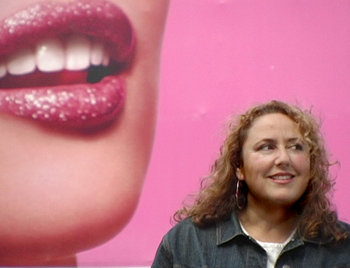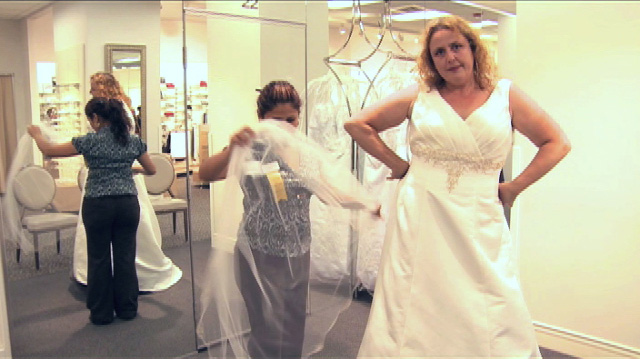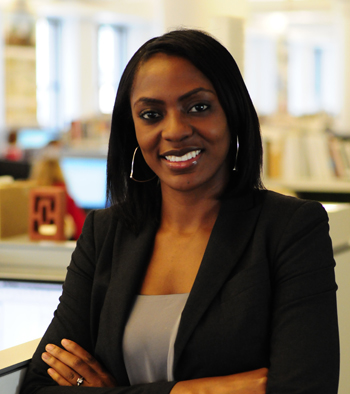
What is your name, age, and location?
My name is Therese Shechter, I’m 48, and I live and work in Brooklyn, NY.
What is your profession?
I’ve been a documentary filmmaker and a writer for the last ten years. I’m currently working on a film called How to Lose Your Virginity about our American obsession with virginity, and I write its companion blog The American Virgin. These days, I feel like a spend a disproportionate amount of time raising money to be able to do my work.
What did you study in school and what degrees do you have?
The first time I went to college, I studied art and design at the Ontario College of Art in Toronto. They didn’t give degrees back then, although they do now. When I graduated from their 4-year program I got an AOCA, which I think means Associate of the Ontario College of Art. My second time in college was in my mid-30s. I went to Columbia College in Chicago and studied Film and Video part-time while I worked at the Chicago Tribune full-time. I left after a few years because I got an internship in New York. I’ve never had a job interview where it mattered what degrees I had. It was all about the work in my portfolio or reel.
What was your first job?
When I was in high school, my best friend Rosie and I ran a weekly program at the Jewish Community Center for developmentally disabled adults called The Friendship Club. Each week we had to come up with activities for the members, who varied wildly in terms of how well they functioned on their own. The one thing everyone loved was the dances we had for all the members and staff, and our most popular had a “Love Boat” theme. What can I say? It was the 70s.
Who or what inspired you to break into your current line of work?
I was working for a large Hollywood-oriented film production company as an assistant, and not only did I hate the job, I was depressed I wasn’t making my own films. After I left, with no ideas for what to do next, I got a spot volunteering at the Sundance Film Festival. I spent the next 10 days watching documentaries that changed my idea of what filmmaking could be. When I got back to New York I enrolled in my first-ever documentary workshop with filmmaker Macky Alston, who became a great mentor to me. He really helped me develop a first-person voice to tell my stories. I developed my film I Was A Teenage Feminist in that class as a purely theoretical project. He told me I had to make the film – for real not just on paper – and actually put his own video camera into my hands and told me to go forth and do some interviews. After that, I was hooked and haven’t looked back.
Name/describe what has been your most rewarding project so far?
It would have to be I Was A Teenage Feminist because it’s been shown all over the world and has become such a popular Feminism 101 kind of film. I (re)discovered my own feminist identity through making the film, and it gratifies me that so many young women and men get introduced to power of feminism by watching and discussing it. I always intended it to be an accessible film that would start conversations and not shut them down, like the F Word sometimes does. I was honored to take part in Serbia’s first-ever women’s film festival last year in Belgrade. They showed I Was A Teenage Feminist to audiences that had rarely had conversations about women’s rights issues before, and the Q&A was wonderful.
My other film How I Learned to Speak Turkish lives in its shadow so it doesn’t get as much love. But it was a very personal film that dealt with female sexuality and its power, and helped me work through a very intense period of my life.

A still from the documentary How to Lose Your Virginity
Name/describe one incident when being a woman has helped your career?
There’s not one thing that stands out, but it does help if you’re doing feminist-themed work, I guess. I’m doing this film on female sexuality, so being a woman comes with built-in credibility and my investigations come from a very personal space. Establishing trust between me and my subjects is crucial, so if I were a guy asking the questions I ask, people might have a lot more hesitation to speak to me. On the other hand, if I were a guy, I probably wouldn’t be doing the work I do.
Name/describe one incident when being a woman has hindered your career?
In terms of hindrance, I have no concrete examples of being hindered because I was a woman. I had good role models and very supportive teachers and mentors. I think it’s a more internal struggle with putting myself out there and tooting my own horn. I was raised to be nice and be liked and not ‘show off’ too much. That’s partly from being Canadian, maybe! I sometimes ask myself what a man might do in certain situations, and the answer always comes back to me that he’d be way more self-confident and self-promoting. It’s vital to be respectful and honest in the work, but it is also the film business, and it’s brutally competitive. It’s always a conscious conversation with myself to put it out there.
Who is your role model or mentor (alive or dead)?
Macky Alston was a huge mentor. Also my mother and grandmother were both accomplished professional women so having that example was so important. My grandmother was a newspaper editor all her life. My mother is a professional musician, linguist and writer. It was very rare among my peer group to have a mother with an advanced degree, never mind a grandmother with a career like hers! The down side was I saw how hard my mother worked in her career(s) while still taking care of almost all the household stuff. I remember her studying for her Master’s degree at 2 in the morning, after all the other family work was done. I think that’s one reason I was wary of marriage and kids from an early age. I didn’t want any obstacles to my own career dreams. I really didn’t buy the ‘having it all’ theory.
If you could give one piece of advice to a woman starting out in your field, what would it be?
It’s a tough field for both men and women, but women especially need to believe in themselves and their work and put themselves out there. The other important thing is to do work you’re passionate about. It’s a long hard road to make independent documentaries, especially in areas that don’t get tons of funding to begin with. So when you’re slogging through the low points, it’s your passion for the subject that will keep you going to the next high. It also helps to have a trust fund.
Links:
How to Lose Your Virginity on Kickstarter.com. Help Therese reach her fundraising goal.
– Interview by Elena Rossini

